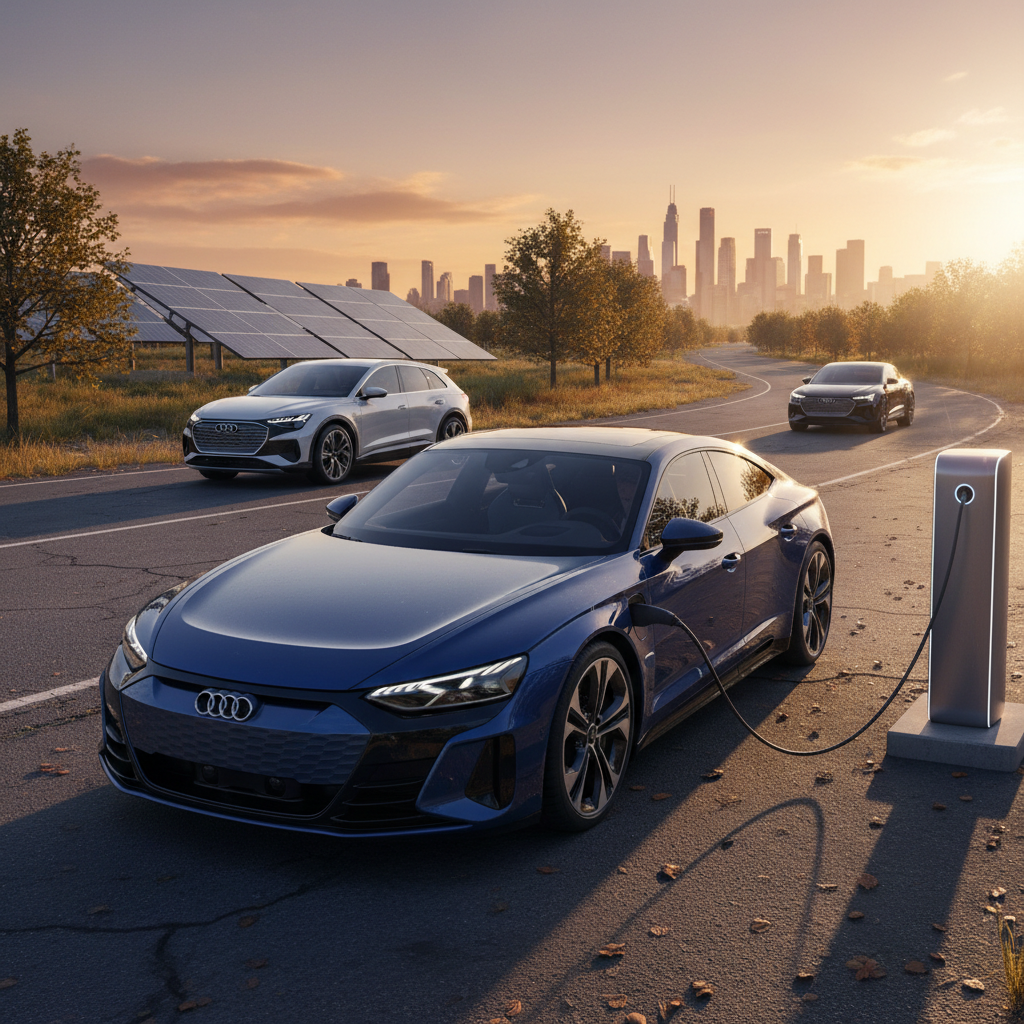Let’s cut to what you actually care about: in 2025, yes, charging is usually cheaper than gas on a cost‑per‑mile basis, especially if you can plug in at home. But “usually” is doing a lot of work there. Electricity prices have climbed, gasoline has come down from its peaks, and fast charging can get pricey. This guide walks through real‑world numbers so you can see exactly when charging is cheaper than gas, and when it isn’t.
The short answer
EV vs gas in 2025: the big picture
2025 fuel and energy snapshot for U.S. drivers
Those averages give us the ingredients for a fair comparison. Gas cars turn gallons into miles; EVs turn kilowatt‑hours into miles. To see whether charging is cheaper than gas, you want to compare cost per mile for each.
How to compare EV charging vs gas: cost per mile
You don’t need to be an engineer to do this math. There are just two steps: figure out how many miles you get per unit of energy, then multiply by what that energy costs in your area.
- For a gas car, divide your local price per gallon by your car’s miles per gallon (mpg).
- For an EV, divide your local electricity rate (in $/kWh) by your car’s miles per kWh.
Sample cost-per-mile: gas vs EV in 2025
These are illustrative national‑average examples. Your numbers will change with your local gas and electricity prices.
| Scenario | Assumptions | Cost per mile |
|---|---|---|
| Gas car (25 mpg) | Gas: $3.10/gal; 25 mpg | $0.124/mi |
| Gas car (30 mpg) | Gas: $3.10/gal; 30 mpg | $0.103/mi |
| EV – home charging | Power: $0.17/kWh; 3.5 mi/kWh | $0.049/mi |
| EV – fast charging | Power: $0.40/kWh; 3.0 mi/kWh | $0.133/mi |
Use these as a starting point, then plug in your own rates and vehicle specs.
Rule of thumb
Home charging: when it’s much cheaper than gas

Home is where EVs really earn their keep. Most utilities still price residential electricity so that, even with the run‑up in rates, you come out ahead versus gas on every mile you drive, especially if you can access off‑peak or EV‑specific plans.
Why home charging usually beats gas
Three big levers tilt the math your way.
Lower energy price
Off-peak discounts
Predictable costs
But don’t ignore your local rates
Quick home‑charging example
Say your utility charges 18¢/kWh and your EV averages 3.3 mi/kWh in mixed driving.
- Energy cost per mile = 0.18 ÷ 3.3 ≈ 5.5¢/mi
- At 12,000 miles/year, that’s about $660 in electricity.
Same driver, gas car
With gas at $3.10/gal and a 28 mpg crossover:
- Fuel cost per mile = 3.10 ÷ 28 ≈ 11.1¢/mi
- At 12,000 miles/year, that’s about $1,332 in gasoline.
That’s roughly $670 per year in fuel savings just from plugging in at home instead of filling up.
Where Recharged fits in
Public & fast charging: when gas can catch up
Out on the road, the story gets more complicated. Public Level 2 chargers in parking garages or workplaces can still be a bargain, but DC fast charging is where you can lose your cost advantage if you rely on it all the time.
Typical 2025 public charging price ranges
Real prices vary by network, location, and time of day. These ranges are common in many U.S. markets.
| Charger type | Typical price | Approx. cost per mile (3 mi/kWh) | How it compares to gas |
|---|---|---|---|
| Public Level 2 (paid) | $0.18–0.30/kWh | $0.06–0.10/mi | Usually still cheaper than gas |
| DC fast charging – standard | $0.35–0.45/kWh | $0.12–0.15/mi | Often similar to a 25–30 mpg gas car |
| DC fast charging – premium/peak | $0.50–0.65+/kWh | $0.17–0.22+/mi | Can be more expensive than gas per mile |
Always check the price in your charging app before you plug in.
The road‑trip trap
The sweet spot for costs is still: charge mostly at home or work, use public Level 2 as a backup, and treat fast charging as a convenience for long drives rather than your daily lifeline.
Other costs that tip the scale toward EVs
Fuel is only one slice of ownership. To really answer whether charging is cheaper than gas, it helps to look at the whole pie, maintenance, repairs, and how long the car will last before it feels tired.
Beyond the plug: savings EVs quietly deliver
These don’t show up on the pump or your power bill, but they matter.
Less routine maintenance
Fewer surprise repairs
Longevity with battery health
When you look past the sticker price, what matters is the cost to own and operate the car over years, not months. EVs tend to win that game when the charging situation is right.
New vs used: why used EVs shine
How much can you save with a used EV?
Let’s put all of this into a simple, realistic scenario: you’re replacing a 28 mpg compact SUV with a used EV and you drive about 12,000 miles a year. You can charge at home most nights, but you’ll hit a fast charger now and then on weekend trips.
Gas SUV – annual fuel
- Gas price: $3.10/gal
- Efficiency: 28 mpg
- Fuel cost per mile: 3.10 ÷ 28 ≈ 11.1¢/mi
- Annual fuel (12,000 mi): ≈ $1,332
Used EV – annual charging
- Home rate: $0.17/kWh, 80% of miles
- Fast charging: $0.40/kWh, 20% of miles
- Efficiency: 3.2 mi/kWh
- Blended energy cost ≈ 7–8¢/mi
- Annual charging (12,000 mi): ≈ $840–960
That’s a fuel savings of roughly $370–$490 per year, before you factor in lower maintenance.
How Recharged helps you reality‑check the math
Checklist: will charging really be cheaper for you?
6‑step checklist to gauge your savings
1. Know your local electricity rate
Look at the “$/kWh” line on your utility bill. If it’s roughly under 25¢/kWh, and especially if you have off‑peak or EV rates, charging is likely to beat gas easily.
2. Estimate your EV’s efficiency
Most modern EVs fall between <strong>3 and 4 mi/kWh</strong>. You can check EPA ratings or look up real‑world averages for the model you’re considering.
3. Compare with your current mpg
If your current vehicle is under about 30 mpg in real life, the EV has a good shot at halving your fuel cost per mile on home charging.
4. Be honest about where you’ll charge
If you can park and plug in at home or work most days, you’re in great shape. If you’ll rely on DC fast chargers 80–100% of the time, your cost advantage shrinks.
5. Think about your annual miles
The more you drive, the more those cheaper EV miles stack up. A 5¢ difference per mile is only $250 at 5,000 miles, but it’s $1,250 at 25,000 miles.
6. Factor in maintenance and repairs
Add a conservative estimate for oil changes, tune‑ups, and repairs you’ll avoid with an EV. Over five years, that can amount to thousands of dollars.
Frequently asked questions
Is charging cheaper than gas? Your questions answered
Bottom line: is charging cheaper than gas?

When you strip away the headlines and look at the numbers, charging is usually cheaper than gas today, often by a wide margin, if you can plug in at home or at a reasonably priced charger most of the time. If you live in a region with very high electricity prices or you expect to rely on DC fast charging for nearly every mile, the fuel‑cost advantage shrinks and you’ll want to run the math carefully.
If you’re curious how this plays out with a specific car, that’s where Recharged can help. Every used EV we sell comes with a clear view of battery health and expert guidance on what it will really cost you to run, charging, not just buying. That way, when you decide that charging should be cheaper than gas, you can be confident your next EV actually delivers.



